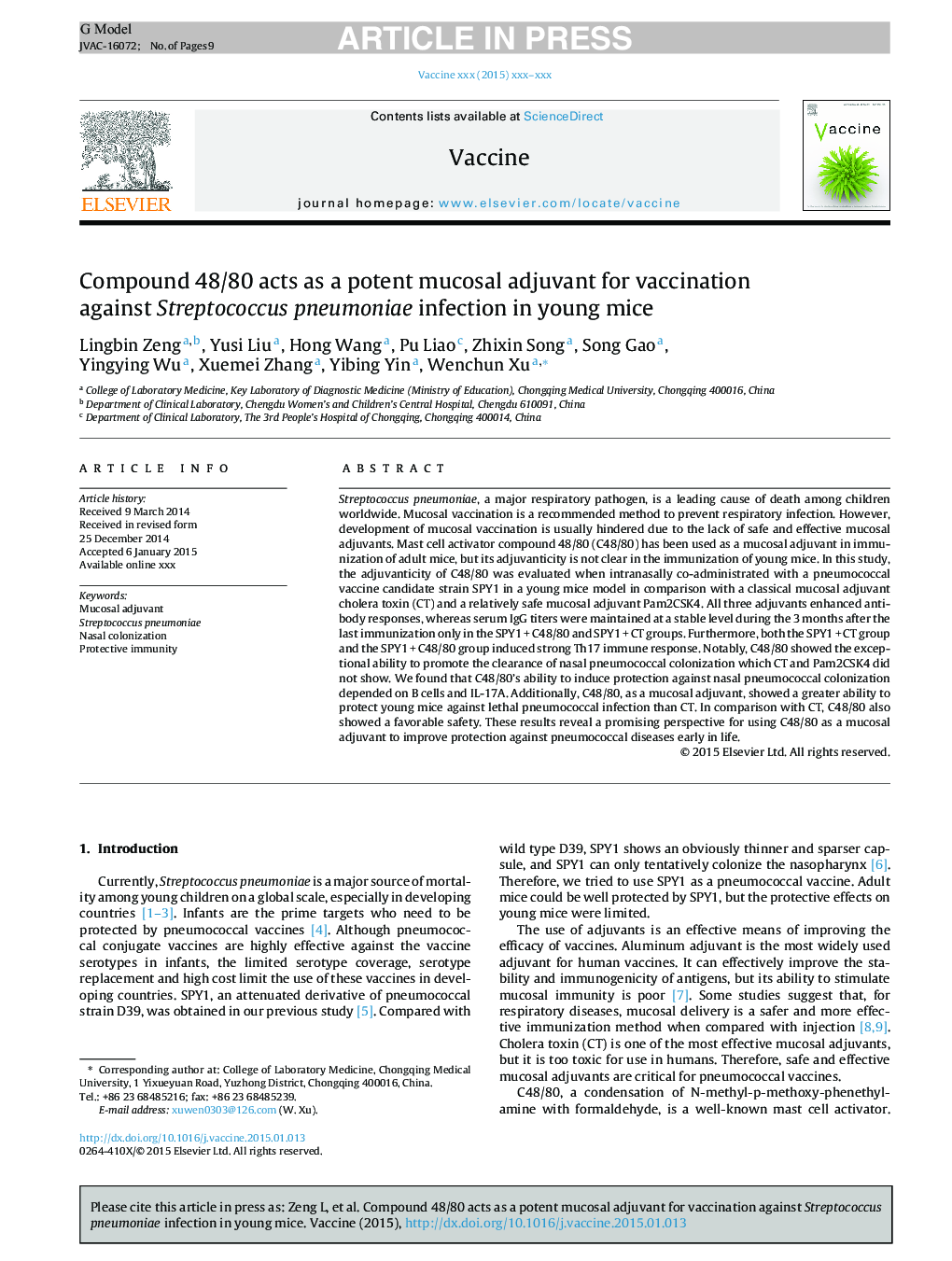| Article ID | Journal | Published Year | Pages | File Type |
|---|---|---|---|---|
| 10964051 | Vaccine | 2015 | 9 Pages |
Abstract
Streptococcus pneumoniae, a major respiratory pathogen, is a leading cause of death among children worldwide. Mucosal vaccination is a recommended method to prevent respiratory infection. However, development of mucosal vaccination is usually hindered due to the lack of safe and effective mucosal adjuvants. Mast cell activator compound 48/80 (C48/80) has been used as a mucosal adjuvant in immunization of adult mice, but its adjuvanticity is not clear in the immunization of young mice. In this study, the adjuvanticity of C48/80 was evaluated when intranasally co-administrated with a pneumococcal vaccine candidate strain SPY1 in a young mice model in comparison with a classical mucosal adjuvant cholera toxin (CT) and a relatively safe mucosal adjuvant Pam2CSK4. All three adjuvants enhanced antibody responses, whereas serum IgG titers were maintained at a stable level during the 3 months after the last immunization only in the SPY1Â +Â C48/80 and SPY1Â +Â CT groups. Furthermore, both the SPY1Â +Â CT group and the SPY1Â +Â C48/80 group induced strong Th17 immune response. Notably, C48/80 showed the exceptional ability to promote the clearance of nasal pneumococcal colonization which CT and Pam2CSK4 did not show. We found that C48/80's ability to induce protection against nasal pneumococcal colonization depended on B cells and IL-17A. Additionally, C48/80, as a mucosal adjuvant, showed a greater ability to protect young mice against lethal pneumococcal infection than CT. In comparison with CT, C48/80 also showed a favorable safety. These results reveal a promising perspective for using C48/80 as a mucosal adjuvant to improve protection against pneumococcal diseases early in life.
Related Topics
Life Sciences
Immunology and Microbiology
Immunology
Authors
Lingbin Zeng, Yusi Liu, Hong Wang, Pu Liao, Zhixin Song, Song Gao, Yingying Wu, Xuemei Zhang, Yibing Yin, Wenchun Xu,
